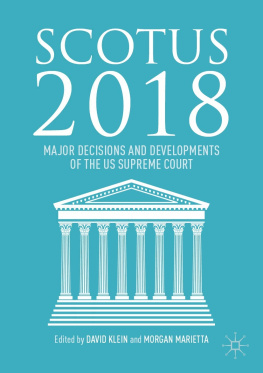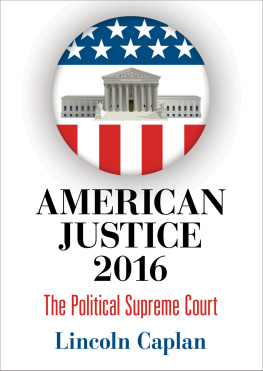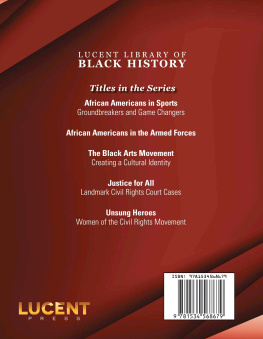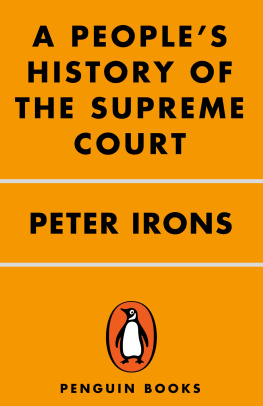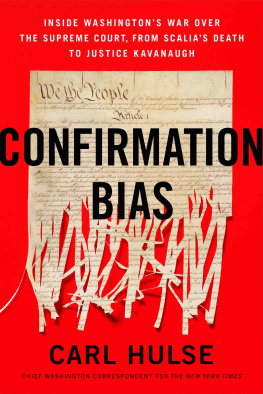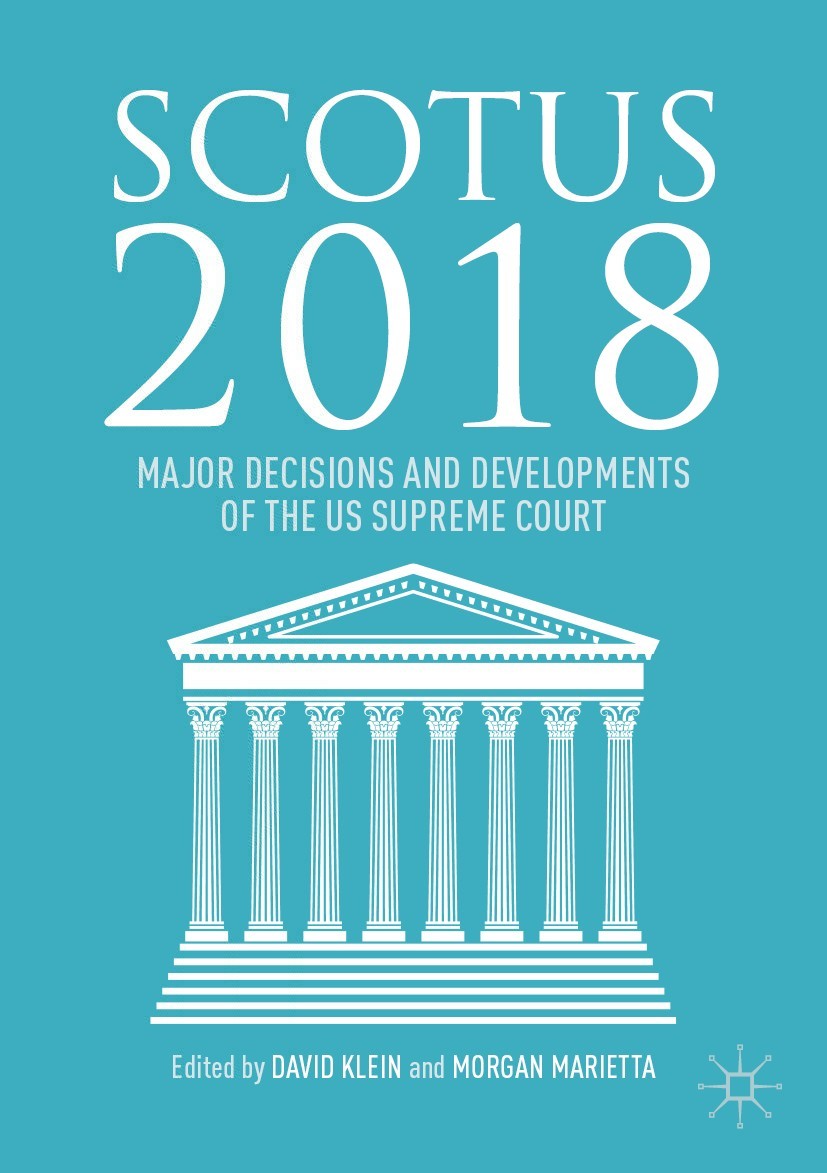Editors
David Klein
Department of Political Science, Eastern Michigan University, Ypsilanti, MI, USA
Morgan Marietta
Department of Political Science, University of Massachusetts Lowell, Lowell, MA, USA
ISBN 978-3-030-11254-7 e-ISBN 978-3-030-11255-4
https://doi.org/10.1007/978-3-030-11255-4
Library of Congress Control Number: 2018967211
The Editor(s) (if applicable) and The Author(s), under exclusive license to Springer Nature Switzerland AG 2019
This work is subject to copyright. All rights are solely and exclusively licensed by the Publisher, whether the whole or part of the material is concerned, specifically the rights of translation, reprinting, reuse of illustrations, recitation, broadcasting, reproduction on microfilms or in any other physical way, and transmission or information storage and retrieval, electronic adaptation, computer software, or by similar or dissimilar methodology now known or hereafter developed.
The use of general descriptive names, registered names, trademarks, service marks, etc. in this publication does not imply, even in the absence of a specific statement, that such names are exempt from the relevant protective laws and regulations and therefore free for general use.
The publisher, the authors and the editors are safe to assume that the advice and information in this book are believed to be true and accurate at the date of publication. Neither the publisher nor the authors or the editors give a warranty, express or implied, with respect to the material contained herein or for any errors or omissions that may have been made. The publisher remains neutral with regard to jurisdictional claims in published maps and institutional affiliations.
Cover design by Oscar Spigolon
This Palgrave Macmillan imprint is published by the registered company Springer Nature Switzerland AG
The registered company address is: Gewerbestrasse 11, 6330 Cham, Switzerland
Preface
Welcome to this new annual series on the major rulings of the Supreme Court.
Each year, the Supreme Court announces new rulings with deep consequences for our lives. The decisions this year will influence how we conduct elections, who are (or are not) our neighbors, how LGBT citizens and religious businesses interact, and how millions of public employees relate to their unions. The rulings change how some of us pay taxes and whether the government has access to the data in our cell phones. But the grounds for those decisions can be obscure. The Constitution can seem distant and difficult rather than clear and compelling. Depending on how we read and understand our laws, a claim to citizen rights or to government powers can be self-evident or utterly disputed; sometimes it is obvious from one perspective, but demonstrably wrong from another. When the Justices of the Supreme Court address these disputes, many Americans want a clear, immediate discussion of the rulings and their meaning, but it is often unavailable. This series attempts to provide that discussion as soon as possible after the major decisions of the year are announced.
Each year, this volume will discuss the Courts most important decisions and developments. Often, the rulings focus on citizen rights versus government powers under the Constitution, though sometimes the Court also settles competing understandings of the text of laws (statutory interpretation), which the volumes will also explain. When a Justice departs or a new Justice arrives, we will discuss the meaning of the change for the Courts future.
For major rulings of the Court, individual chapters by noted scholars will discuss:
the details of the ruling ,
what it means for legal debate , including the rights the Constitution recognizes, the principles it represents, and especially the divisions over how our laws should be read and interpreted, and
when possible, the implications of the ruling for public policy or partisan politics .
Perhaps the core purpose of the Supreme Court is to identify the existence and limits of rights, those concepts asserted by the Declaration of Independence and upheld by the Constitution, which citizens and groups hold regardless of the will of the majority. The politics of rightsfree speech rights, religious rights, gay rights, gun rights, corporate rights, immigrant rights, privacy rights, and many othersare at the heart of American democracy. Many assertions of rights are recognized, while some are revolutionary. One of the core dilemmas of our system of government is when individual citizens hold a right to decide things for themselves, or when the majority is empowered to make decisions for all of us. The Supreme Court is the last resort for those who believe that their rights have been violated, as well as for those who believe that claims to rights have been expanded too far at the expense of majority rule and necessary governance.
The Supreme Court and its rulings are both principled and political. The decisions are grounded in deep (and disputed) beliefs about how the Constitution should be understood, as well as competing perceptions of the realities of contemporary society. The Courts rulings have long-term ramifications for legal doctrines as well as for the daily lives of Americans. For these reasons, the authors in this book are scholars of both the law and of American politics. They come from diverse backgrounds, with an array of academic, legal, ideological, practical, and scholarly perspectives. The rulings they explain in the following chapters speak of the long and complex history of our constitutional conflicts, but are meant to be understood and considered by ordinary citizens. In that sense, we aim to be a useful addition to the public discussion of the Constitution and the Court.
David Klein
Morgan Marietta
Ypsilanti, USA; Lowell, USA

